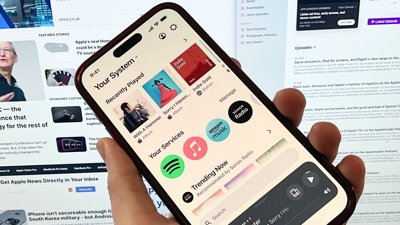After more than three years, the Epic Games vs Apple legal battle is completely over as the US Supreme Court refuses to hear the "Fortnite" maker's appeal.
On August 13, 2020, Epic Games decided to implement direct payments for "Fortnite" in an attempt to circumvent Apple's 30% App Store commission. Apple then pulled the game from the App Store and Epic Games, expressing surprise, launched what proved to have been a long-planned legal battle.
Some three years and five months later, that battle is finally ended, with no more opportunities for appeal. Throughout the long saga, Epic Games has mostly lost at every step, but Apple did not always win.
According to Reuters, the US Supreme Court decided on January 16, 2024, that it would decline to hear an antitrust challenge by Epic Games. The challenge was by way of an appeal against a lower court's decision, but the Supreme Court also declined to hear Apple's own appeal of that same decision.
Apple's disagreement with the decision concerned a part of the ruling that accused Apple of anti-steering practices, or how it prevents developers informing users of alternative ways to buy their apps.
That ruling in 2021 by Judge Yvonne Gonzalez Rogers, included a requirement for Apple to alter its App Store practices to avoid anti-steering. While Apple was appealing against that decision, the judge's injunction was put on hold.
That hold on the injunction is presumably now lifted, but neither the courts nor Apple have commented.
Why Apple and Epic Games went to court
Epic Games CEO Tim Sweeney has previously claimed that his company's disagreement with Apple was not about the 30% App Store commission. He's claimed that his dispute is over a free market where anyone can compete.
"If we just build this thing in an open environment then companies can live on their merits," Sweeney said in March 2023. "We very much like that because we have a history of winning on the merits when given the chance and we're terribly frustrated at markets like iOS where you just can't make an Epic Games Store for iOS because Apple says 'You can't compete with us'!"
For its part, Apple has repeatedly said only that Epic Games chose to break the App Store agreements that it had signed.
"Epic's problem is entirely self-inflicted and is in their power to resolve," said Apple in 2021. "Epic has been one of the most successful developers on the App Store, growing into a multibillion dollar business that reaches millions of iOS customers around the world."
"We very much want to keep the company as part of the Apple Developer Program and their apps on the Store," continued Apple at the time.
Following the Supreme Court's final ruling, Sweeney took to Twitter/X to decry the decision — and to paint the anti-steering injunction as a
victory for developers.
The Supreme Court denied both sides' appeals of the Epic v. Apple antitrust case. The court battle to open iOS to competing stores and payments is lost in the United States. A sad outcome for all developers.
— Tim Sweeney (@TimSweeneyEpic) January 16, 2024
 William Gallagher
William Gallagher





-m.jpg)


-m.jpg)






 Christine McKee
Christine McKee
 Chip Loder
Chip Loder
 Oliver Haslam
Oliver Haslam
 Malcolm Owen
Malcolm Owen

 Amber Neely
Amber Neely

 Andrew Orr
Andrew Orr







53 Comments
Epic tale of greed...
Speaking of epic tales, when will Stephen King be writing a book based on this story and his look-alike?
Might even be a Sweeney Todd reboot of sorts entitled, Tim Sweeney: The Demon Gamer of Cheat Street
Meanwhile Epic is intentionally running their own game store at a loss to try and gain marketshare. That's a direct contradiction to Sweeney claiming that he wants to compete on "merit". Running at a loss is the approach bigger companies do to try and snuff out smaller competitors who can't afford that approach.
So Apple has to allow companies to say "you go to <company's website URL> to subscribe", but Epic and other companies don't have a right to their own app stores?